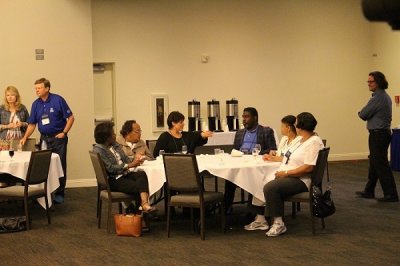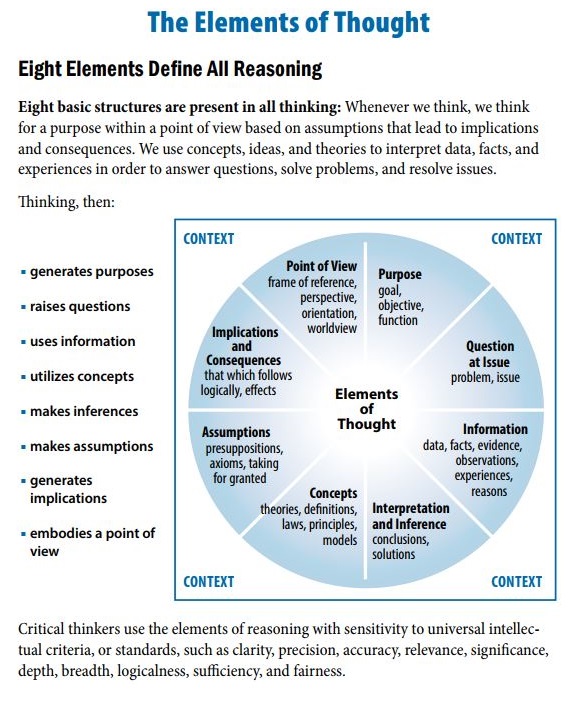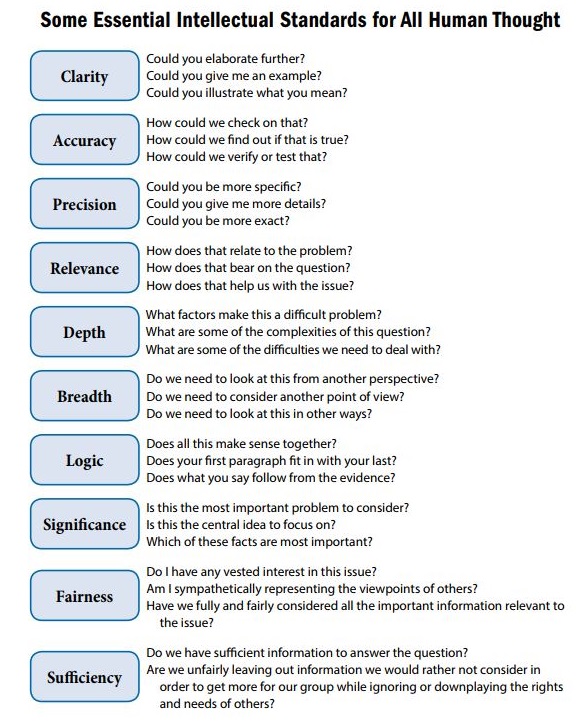






Translate this page from English...
*Machine translated pages not guaranteed for accuracy.
Click Here for our professional translations.

We Can Help You Build a Local Critical Thinking Town Hall
People across the world are increasingly focused on how they can actively make improvements in their local areas. There is no doubt that the future of human societies will entail emphases on developing national and international relationships, and this will - and should, of course - continue and grow. We are one species capable of handling highly complex problems and working together under the right conditions.
But we must also do our best thinking locally, to bring our communities together for the public interest. People are often split politically and distrustful of one another. Many pressing and significant issues face our communities. We need to cultivate education systems that actually develop the minds of its students so they learn to reason through complex issues. We need to create parks and programs that enhance the physical and emotional well-being of the people living in the community, to bring more art, theatre, and other forms of culture and beauty to our communities. We need to work toward sustainability of the earth’s resources right at home, sharing and developing resources for doing so. We must give life to the concept of inclusion so all people in our communities can reach their potential. We must work together for solutions. But how? What tools can be used for this purpose? How can these tools be taught to the people?
communities together for the public interest. People are often split politically and distrustful of one another. Many pressing and significant issues face our communities. We need to cultivate education systems that actually develop the minds of its students so they learn to reason through complex issues. We need to create parks and programs that enhance the physical and emotional well-being of the people living in the community, to bring more art, theatre, and other forms of culture and beauty to our communities. We need to work toward sustainability of the earth’s resources right at home, sharing and developing resources for doing so. We must give life to the concept of inclusion so all people in our communities can reach their potential. We must work together for solutions. But how? What tools can be used for this purpose? How can these tools be taught to the people?
 The answer is critical thinking, and its sister, creative thinking.
The answer is critical thinking, and its sister, creative thinking.
Fortunately, people are increasingly focused on what they can do to improve their local communities through the development of local talent, through inclusion programs, and by working together for the collective good. At the same time, people are fishing around for answers. Discussion groups are forming across the internet. But what is usually missing is an emphasis on reasoning through the issues being discussed using explicit tools of critical thinking.
Let us work with your local groups to introduce the concepts and principles in a robust, integrated, fairminded conception of critical thinking that can be taught to all community members (of all ages) as you work together to reason through the issues and concerns you face, and to develop the programs you would like to see realized in your community.
 Our program begins with a twelve-week process in which we meet online with your leadership team, and with community members who are ready to take the lead in embracing the concept of a Critical Thinking Town Hall™. We will meet with your group remotely for 1 ¼ hours per week. In these online meetings, we will introduce foundational concepts of critical thinking while facilitating the contextualization of these principles in reasoning through the problems and concerns you would like to focus on as a group.
Our program begins with a twelve-week process in which we meet online with your leadership team, and with community members who are ready to take the lead in embracing the concept of a Critical Thinking Town Hall™. We will meet with your group remotely for 1 ¼ hours per week. In these online meetings, we will introduce foundational concepts of critical thinking while facilitating the contextualization of these principles in reasoning through the problems and concerns you would like to focus on as a group.
During the last six weeks, we can offer a facilitator's certificate for your leadership team. After twelve weeks and completion of the facilitator's certificate process, your leadership should have the requisite critical thinking tools for continuing the Critical Thinking Town Hall™.
 All background reading materials will be provided to your leadership team (up to five people), as well as a powerpoint file to use in all meetings. This powerpoint file contains the primary diagrams you will need to continue fostering critical thinking in your local community. We can also be available to continue leading the process beyond the twelve weeks.
All background reading materials will be provided to your leadership team (up to five people), as well as a powerpoint file to use in all meetings. This powerpoint file contains the primary diagrams you will need to continue fostering critical thinking in your local community. We can also be available to continue leading the process beyond the twelve weeks.
Your local community members (up to 20 people) will have complimentary access to our Center for Critical Thinking Community Online during the twelve-week program, where they will be able to view videos and engage in activities to learn critical thinking at the level they wish.
For more information, contact Lisa Sabend at Lisa@CriticalThinking.org.
For a beginning understanding of the concepts we will teach in your Critical Thinking Town Hall™, see the diagrams below. Note that we focus on these critical thinking concepts – in all of our meetings with your group, as we do in all of our work. These are taken from The Miniature Guide to Critical Thinking Concepts & Tools by Richard Paul and Linda Elder, and illuminate the fundamentals of critical thinking.
To learn more about the Paul-Elder Framework for Critical Thinking™, join the Center for Critical Thinking Community Online.




Please do not pass this message by.
CRITICAL THINKING IS AT RISK.
Here are some of the big reasons why:
As you see, increasingly powerful trends against the teaching, learning, and practice of critical thinking entail extraordinary challenges to our mission. To continue our work, we must now rely upon your financial support. If critical thinking matters to you, please click here to contribute what you can today.
WE NEED YOUR HELP TO CONTINUE OUR WORK.
Thank you for your support of ethical critical thinking.